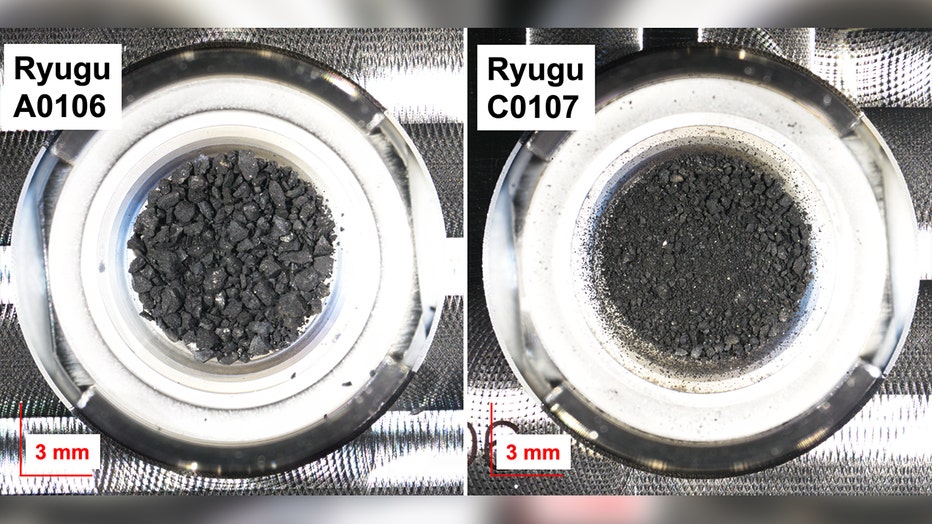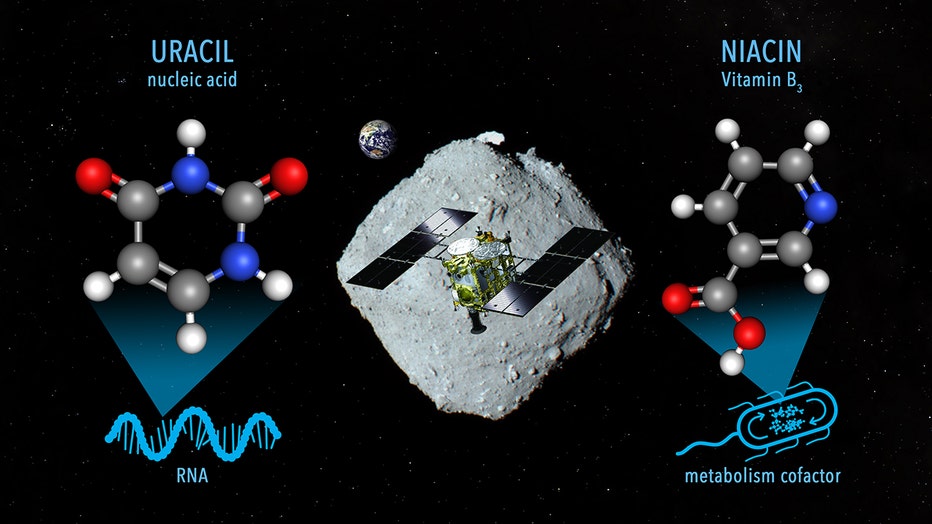Near-Earth asteroid samples found to contain RNA compound, vitamin B3
New video shows DART asteroid impact from Hubble space telescope
A video NASA released shows the debris caused by the Double Asteroid Redirection Test (DART) mission spacecraft slamming into the asteroid Dimorphos. (Courtesy: NASA / ESA / STScI / Jian-Yang Li (PSI) / Joseph DePasquale (STScI))
JAPAN - Two organic molecules, essential for living organisms, have been detected in samples collected from a near-Earth asteroid Ryugu.
The samples were collected by the Japanese Space Agency’s Hayabusa2 spacecraft from two sites on Ryugu in 2019. This enabled researchers to analyze the material without uncontrolled exposure to the Earth’s atmosphere and biosphere.
The Ryugu samples, which look like dark-gray rubble, were then transported back to Earth. From there, about 10 mg of the Ryugu samples were exposed to hot water, followed by exposure to a strong acid solution to increase the yield of molecules. After that, the extracted solution was analyzed.
The scientists revealed Tuesday they detected a wide variety of organic molecules including uracil and niacin in the rocks. Uracil is one of the one of the building blocks for RNA. Niacin, also called Vitamin B3, is used by the body to turn food into energy.

The Ryugu samples were exposed to hot water, followed by exposure to a strong acid solution. (Credit: JAXA)
Yasuhiro Oba, a lead researcher of study, told FOX Television Stations, that the team already knew that the Ryugu sample contained amino acids and other organic molecules, based on their previous 2022 study.
"We strongly expected the presence of uracil and other related molecules, too," Oba shared, adding, "However, since the volume of the extracted sample solution was very limited after the detection of amino acids, we were afraid that the sample volume might be short for the detection of nucleobases. But, we did it!"
In that sense, Oba said the team was surprised by the detection.

Conceptual image of asteroid Ryugu. (Credit: NASA, Goddard, JAXA, Dan Gallagher)
The study, which detailed the findings Tuesday in Journal Communications, suggests that such molecules commonly formed in asteroids including Ryugu and were delivered to Earth billions of years ago by meteorites.
The study’s researchers also said this increases the evidence that the building blocks of life originated in space.
"Such organic molecules may play a role for prebiotic evolution on the early Earth and possibly lead to the emergence of the first life," Oba continued. "Many readers may have a strong interest in our own origin. Although the present finding may not directly lead to the elucidation, the components in such a pristine asteroid should have a number of valuable information for that issue. I think our duty is to fully understand what kind of components are present in such extraterrestrial materials and how they are formed abiotically. We will try to do our best for the goal."
RELATED: Webb Space Telescope 'unexpectedly' finds its smallest asteroid yet
NASA’s OSIRIS-REx spacecraft is on track to deliver a sample from another asteroid named Bennu on Sept. 24, 2023.Oba said his team will have a chance to analyze this.
"A comparison of organic components between Ryugu and Bennu would be of special interest and important for better understanding prebiotic chemistry in each asteroid," he added.
This story was reported from Los Angeles.

